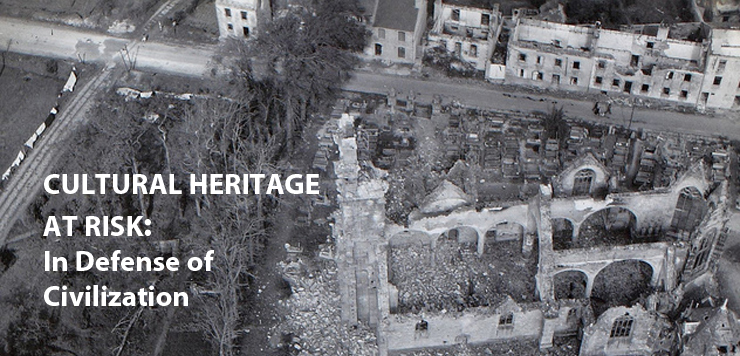Start Date
27-10-2017 9:30 AM
End Date
27-10-2017 10:15 AM
Abstract
Brian I. Daniels, Ph.D, Penn Cultural Heritage Center, University of Pennsylvania Museum.
Why is cultural heritage targeted in conflict? Under what circumstances? By whom? Today, due in part to the recent notorious instances of cultural destruction in the Middle East and North Africa, there is perhaps more attention among the broader scientific community than ever before about the phenomenon of cultural loss. At the same time, there are many significant data and analytical gaps. Little social science literature about cultural destruction exists and many critical questions—and avenues of research—are, as of yet, unstudied. A primary reason for this lack of attention is the absence of event-level data about cultural destruction that can test theories about this kind of violence. This presentation discusses some of the data needs that exist in order to develop a more robust understanding about cultural destruction and the problems and prospects for future analysis.
Included in
Archaeological Anthropology Commons, Architectural History and Criticism Commons, Art and Materials Conservation Commons, Arts Management Commons, Cultural Resource Management and Policy Analysis Commons, Fine Arts Commons, Forensic Science and Technology Commons, Geographic Information Sciences Commons, Historic Preservation and Conservation Commons, International Relations Commons, Other History of Art, Architecture, and Archaeology Commons
OPENING KEYNOTE ADDRESS: Using Data to Understand Cultural Destruction
Brian I. Daniels, Ph.D, Penn Cultural Heritage Center, University of Pennsylvania Museum.
Why is cultural heritage targeted in conflict? Under what circumstances? By whom? Today, due in part to the recent notorious instances of cultural destruction in the Middle East and North Africa, there is perhaps more attention among the broader scientific community than ever before about the phenomenon of cultural loss. At the same time, there are many significant data and analytical gaps. Little social science literature about cultural destruction exists and many critical questions—and avenues of research—are, as of yet, unstudied. A primary reason for this lack of attention is the absence of event-level data about cultural destruction that can test theories about this kind of violence. This presentation discusses some of the data needs that exist in order to develop a more robust understanding about cultural destruction and the problems and prospects for future analysis.

Speaker Information
Dr. Brian I. Daniels is the director of research and programs for the Penn Cultural Heritage Center at the University of Pennsylvania Museum, a visiting professor in the Sustainable Cultural Heritage Graduate Program at the American University of Rome, and a research associate at the Smithsonian Institution. Dr. Daniels co-directs the Safeguarding the Heritage of Syria and Iraq Project, which aims to enhance the protection of cultural heritage by supporting professionals and activists in conflict areas. He also leads the National Science Foundation-supported Conflict Culture Research Network, a group of fifteen international universities and research organizations focused on the study of intentional cultural destruction. Concerned with indigenous rights, he has worked for over eighteen years with Native American communities on issues related to political sovereignty, cultural repatriation, and heritage preservation. He has received the Society for American Archaeology's Presidential Recognition Award for his efforts to protect Syrian and Iraqi cultural heritage and the Lynn Reyer Award in Tribal Community Development from the Society for the Preservation of American Indian Culture for his work with the Shasta Indian communities of northern California. He previously served as the manager of the National Endowment for the Humanities regional center initiative at San Francisco State University, where he worked on strategies for community engagement, outreach, and cultural documentation. Dr. Daniels received his doctoral degree from the University of Pennsylvania.